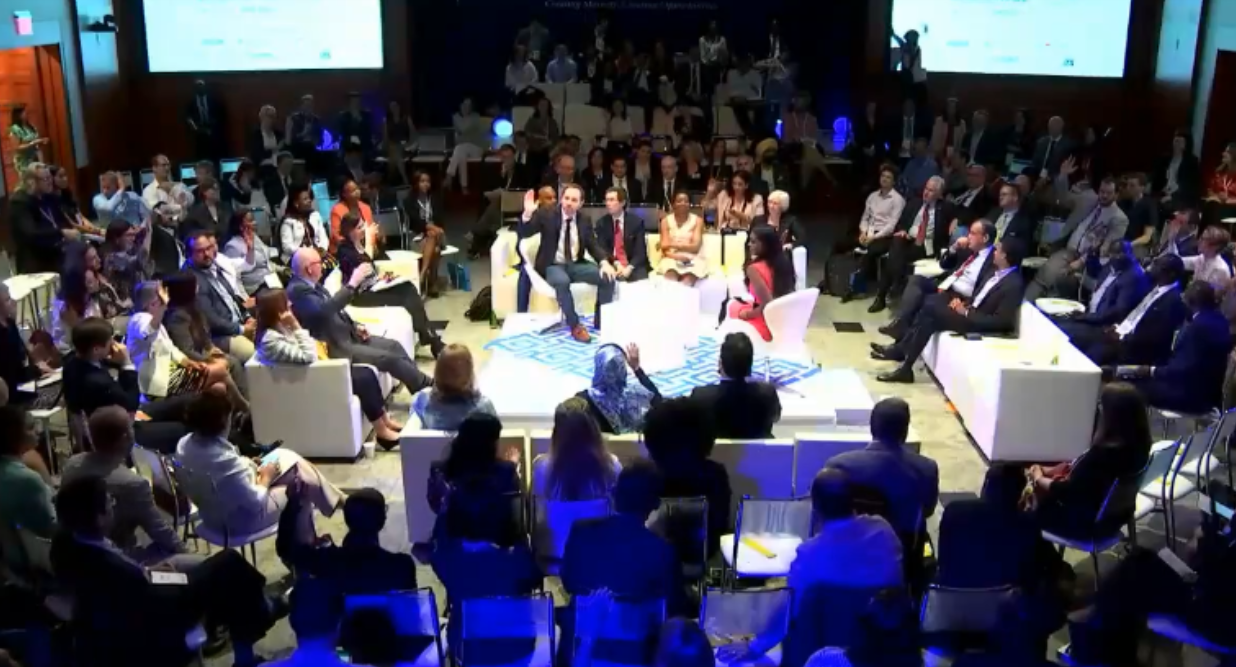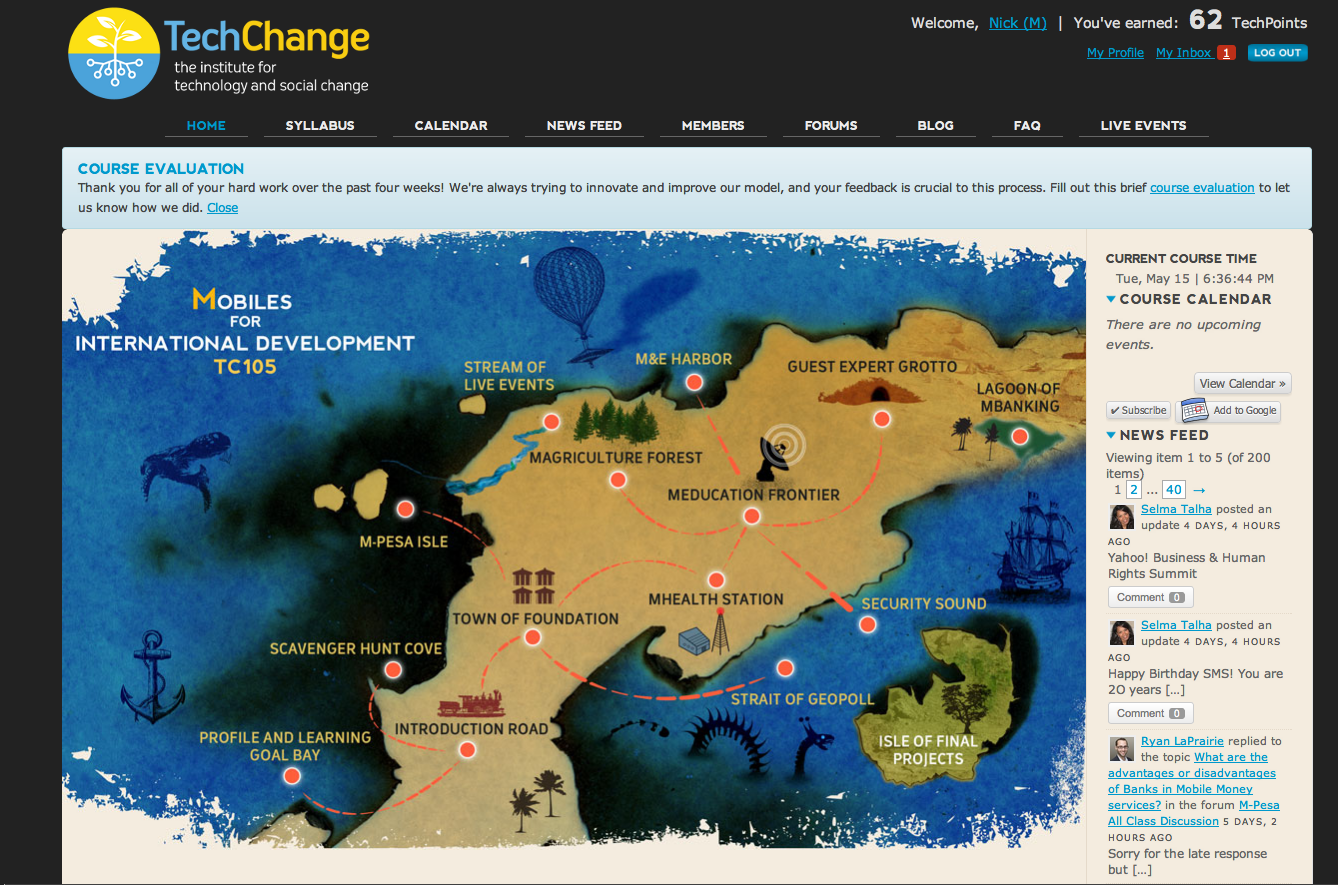Panels are a generally terrible formats for online webcasts, but solo presenters often lose the spontaneity of expert interaction. Can a new format help produce better conversations and better insights?
Today, TechChange Founder Nick Martin participated in the IFC Sustainability Exchange 2018, where he was interviewed by Kavya Kopparapu, and then turned to interview Reg Manhas of Kosmos Energy. This 15-minute rolling conversations continued between a dozen experts on topics ranging from energy, healthcare, politics, and more, with each expert linking the conversation to the next. The full archive is available online, but represented an interesting an interesting new application of online conversation format.
“The Long Conversation” format was adapted in this instance from The Smithsonian, where 25 leaders from the arts and sciences in a relay of two-person dialogues. But the unscripted back-and-forth of experts-interviewing-experts has also been used by organizations such as The Long Now Foundation, in 2010 which combined the 6-hour 19-minute presentation with data visualization performance by Sosolimited and a live performance of composer Jem Finer’s Longplayer.
What was most interesting about this format is how well it fits in with online-first pedagogy, where the shift away from broadcast-based technodeterminism of Ted Talks is moving towards more participatory approaches. Thus far, the main method for altering presentation formats has been to engage audience participation in solo presenters (including ignite talks) and panels via polling or questions. These are steps forward, but still represent the “sage-on-a-stage” approach to learning.
What is interesting about the Long Conversation format is the approach that each presenter has something to share, but also something to learn from another presenter. Through curation of speaker selection, each speaker provides a link between ideas to flesh out their own understanding, which acts as an intermediary for the audience’s own learning. Through this manner, each binary “hop” happens through paired learning, which can then flesh out increasingly complex themes such as sustainability.
There’s no one way to create an online learning experience. But concepts such as the Long Conversation may make a more natural fit than panels and ignite talks for the evolution of online discussion formats.


